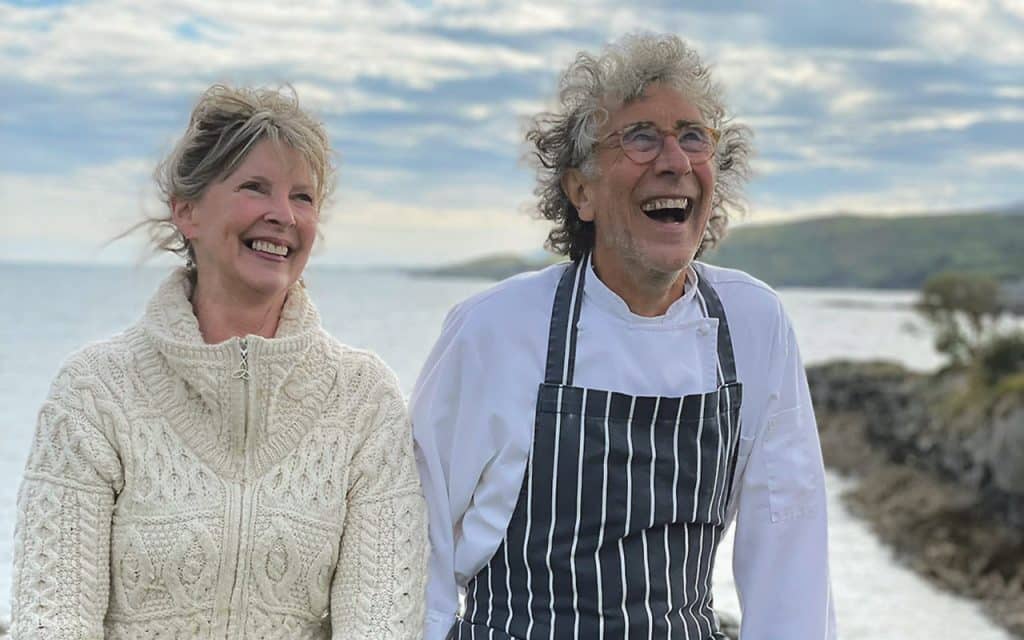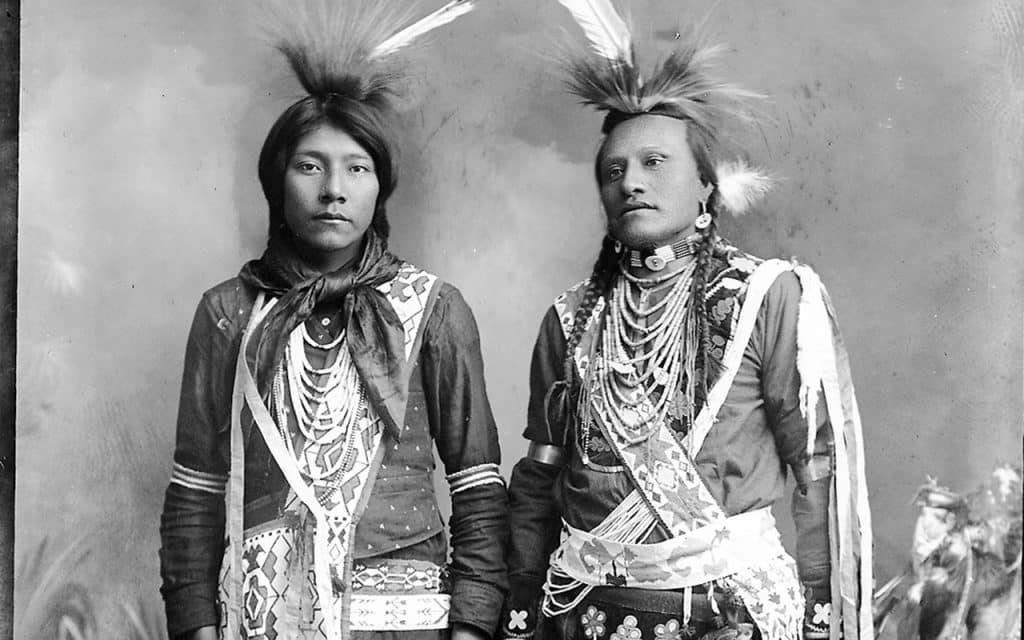From bustling kitchens in London to the quiet fields of West Cork, chef Chris Hedges’ passion for food and people has brought him on a journey as rich and varied as the dishes he is known to create. The freelance chef, 76, who lives on a hilltop just outside Ballydehob, reflects to Mary O’Brien on a career that has seen him feeding people from all walks of life, from world leaders and rockstars to families and farmers at local weddings and threshings.

Born into a hardworking family – his father, raised in an orphanage in London’s East End, was an apprentice tailor before being conscripted into the army at the beginning of World War II – Chris grew up in a Council estate and attended the local Catholic school in Swindon, an industrial town with a large Irish community. His Catholic upbringing, alongside Irish school friends (one of whom later became the well-known singer-songwriter Gilbert O’Sullivan) fostered a curiosity about Ireland. While not academic, Chris’ early experiences shaped his work ethic. As a young teenager he held a newspaper round and later went on to attend catering college before moving to London in the swinging sixties, where he shared a flat in Notting Hill Gate with musicians and creatives while working in prestigious locations like Grosvenor Square and St. James’s for the likes of famous restaurateur Madam Prunier.
They were fun years for the young chef but a combination of wanting to further his career and feeling the pull to travel led him to Kent in his early twenties where he became head chef at Hilden Manor Inn, a Tudor manor house. Two years later Chris decided there was more to life than working in a fast-paced kitchen, and while seeing the world was still at the back of his mind, he opted for the quiet of the English countryside, purchasing a rundown farm labourer’s cottage in the Cotswolds and opened a teashop specialising in French pastries. However the rapidly changing pace of village life soon left him disillusioned and yearning for a much simpler lifestyle.
A chance conversation over dinner with friends got Chris thinking about relocating to Ireland “Ireland or France were suggested as affordable and nice places to live,” says Chris. Not being a French speaker, he settled on Ireland and within a month he had sold the teashop and set off for West Cork in his Bedford van with mattress in the back.
Chris arrived into Toormore when a harvest festival was taking place. “There were hay bales, acoustic music and a magical atmosphere. I thought, ‘Yeah, this is it.’” he shares.
After his friend Bridget and her two children, Ivan and Laurie, joined him, Chris rented the Shoemaker’s Cottage in Ballydehob before purchasing an old farm property outside Ballydehob that became his lifelong project.
With very little funds to his name, Chris began renovations, using reclaimed wood from Cork’s Ford assembly plant. Irish rural life in the early 70s was as simple as one could find: There was no electricity or running water in the old cottage so Chris and Bridget relied on a hand-dug well and a bilge pump to access water. Fishing in Roaringwater Bay provided mackerel and pollack and they travelled into the village or to the local creamery on horse and cart for provisions, raised livestock and grew their own vegetables, selling surplus produce to neighbours like the late Danish writer Erik Christian Haugaard, affectionately known locally as ‘Eric the Viking’. “We had a beautiful Jersey house cow, so we made our own yoghurt and butter and cheese,” recalls Chris.
The couple, who were friendly and hardworking, soon settled into the local community. When he wasn’t restoring the property, Chris took on work where he could find it – picking stones for farmers, painting, gardening, carpentry and even turning his hand to making hats and scarves. Life was hard but fulfilling. “When God made time, he made plenty of it,” says Chris, an Irish adage that has shaped the chef’s approach to life. “Although I think it might be an Irish joke,” he adds laughing.
There isn’t much that goes unnoticed in rural Ireland and before long word spread of Chris’ skills as a chef and he started catering for local events, including for many of the prominent figures who had homes in West Cork, like then-Taoiseach Jack Lynch and years later, Tony Blair. “I’d often get a call about a job that I wasn’t allowed to talk about,” shares Chris.
Local potter, the late Leda May got quite a surprise when Chris arrived on her doorstep in the nineties with Tony and Cherie Blair. “Cherie wanted to buy some local pottery,” explains Chris. “Leda had some family over from London from Christmas and they nearly fell off their chairs when Tony arrived in and shook their hands,” says Chris. “It was just before he became prime minister.”
“I ended up working at parties where Taoiseachs and prime ministers, famous authors, captains of industry, you name it, were in attendance, but I never wanted to exclusively cater to the rich and famous,” says Chris. “I have always loved the variety my work brings – one day a First Communion, the next a hog roast at the Caheragh Threshing, the following week a dinner party for a famous film director. ”
For Chris, the joy of cooking lies in the shared experience of a well-prepared meal.
“Food is universal,” says the chef. “It has the power to connect people, whether you’re sitting with a president or your next-door neighbour. That’s what I love about what I do – it’s not just about the food; it’s about the people and the stories we share over a meal.”
From intimate dinner parties to community and multicultural events, Chris’ ability to adapt to any situation – on a day’s notice he once did a three week stint on a luxury yacht in the Caribbean sailing to New York for a fashion show – and deliver exceptional food has earned him a loyal following.
One standout memory involves a high-pressure event: a wedding for 300 guests. With only a short time to prepare, Chris orchestrated a kitchen team of 15 and meticulously planned every detail, from equipment placement to slicing smoked salmon for starters. Despite setbacks, including a West Cork gale threatening the marquee, the event was a success.
The seasoned chef has learned to expect and indeed embrace the unexpected. On a catering job for Estrid Bannister Good – the Danish muse, famous lover, translator and founder of The Adventurers’ Club of Denmark, who spent a lot of her later life in Glandore, Chris woke up to heavy snowfall on the day of the party. “I arrived in Glandore to be pelted with snowballs by these crazy Danish people, who all arrived into the kitchen after dinner looking for me to sing Cockney songs,” says Chris. “They all went off to bed eventually and I ended up getting really drunk with Bridget, the housekeeper and Esther’s cook over a bottle of Stolichnaya vodka. Chris’ hangover the following day was eased somewhat by the fact that Irish businessman Tony O’Reilly’s secretary, who was at the dinner, referred his services to her boss, who became a regular client. “He once caught me taking a break on his sun lounger when he flew over Glandore unannounced in his plane,” says Chris laughing. “He was a lovely man, we had some really good times.”
In his fifties, Chris met his wife Patti O’Brien, a Boston nurse with Irish connections, through a mutual acquaintance. After a long distance relationship, Patti proposed, and the couple celebrated their union in a lively party in the community hall in Ballydehob. “I was still waiting on my divorce, so we literally jumped over a broomstick,” says Chris, smiling at the memory. The couple later legally married in a quieter ceremony in Boston.
While trained in classical French cooking, Chris’s career is marked by versatility, a refusal to specialise, and a deep respect for quality ingredients. From dissecting veal legs with precision to crafting exquisite pastry dishes, he takes pride in mastering the techniques he’s learned over the years from talented chefs. This jack-of-all-trades mentality has allowed him to enjoy various aspects of cooking, from butchery to fine dining.
He is known for treating his staff well, ensuring fair pay and a positive working environment—a philosophy he embraced early in his career.
Today, when not working, Chris spends his time maintaining his property. He shares how he finds ironing sheets and pillowcases for their AirBnB quite meditative and how he has rekindled a passion for beekeeping.
Now a very proud Irish citizen, Chris attributes much of his happiness and success in life to the people of West Cork.“When times were tough, my community helped me out,” he says. “That generosity is part of what makes this place so special.”
Despite being 76, the chef has no plans to retire, juggling a busy Christmas schedule and freelance gigs. “Life here has given me a different perspective. It isn’t about chasing success. It’s about community and the joy of simple things.”



